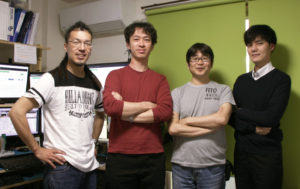Japanese New Car Productions Resumes Amid Nuclear Concerns
Suzuki, Mazda, Daihatsu and Mitsubishi are the first auto makers in Japan to restart production after the devastating earthquake in the Northeast of the country just over one week ago. However, their production will be limited to vehicles that are already in various stages of completion on the lines, and also by the quantity of parts that they have on hand in factories. Mazda, for example, expects production to be limited and last only for two to three days.
The fact is that Japan’s logistics infrastructure has been dealt a heavy blow by the earthquake. In normal times, the quality of the logistics system means that the famous Just In Time production method (meaning that materials or parts required for production are delivered or manufactured just before they are needed for assembly, keeping stock piles low) is a key factor in Japan’s economic success. However, in times like this, it can also be an Achilles Heel as plants are sitting idle waiting for parts or raw materials that the disrupted infrastructure is struggling to provide.
In related news, the Chairman of the JAMA (the Japan Automobile Manufacturers Association) issued a statement to calm fears of radioactive contamination of new cars being produced for export overseas:
“No radiation levels that would affect humans has been detected at Japan’s car manufacturers, nor at any of their properties.”
It seems he is reacting more to perceived dangers in the public mind in Japan’s overseas markets. After all, no radiation changes have been detected in Tokyo, and the prevailing winds generally blow out over the Pacific from the North East of Japan where the Fukushima nuclear facility is located, not towards the capital area (Kanto, where many shipments leave from) or the manufacturing heart of Japan in the central area around Nagoya (the Chubu region). Even if there was some contamination, this could be easily dealt with by simply washing away whatever residue rainfall had left on the cars.
I think that it is accurate to say that there is no significant radioactive effect on Japanese new or used cars being shipped from Japan caused by this nuclear incident.


